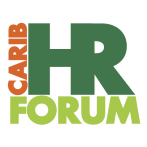 As we develop and grow as a civilized society, one would think our humanity and respect for humanity would also progress. When we review all the positives and negatives, the net effect (according to media reports) may lead one to believe that there is a lot of efforts being exerted to serve our ego and greed, resulting in high crime rates and a general lack of respect for life.
As we develop and grow as a civilized society, one would think our humanity and respect for humanity would also progress. When we review all the positives and negatives, the net effect (according to media reports) may lead one to believe that there is a lot of efforts being exerted to serve our ego and greed, resulting in high crime rates and a general lack of respect for life.
In our work life, we have also managed to replicate this general social disposition where trust is being eroded and in its place tons and tons of documentation stored on hard-copy or in high priced data centers.
For trust to be evident in our organizations, we should have some commonly held ethical beliefs, mutual shared obligations, goals and objectives with internalized values and norms. How often do we hear words like “I can rely on Tom”, I can depend on Mary”? Reliability and dependability are the results of trust. How often do you hear, “Send me an email first”? Our personal experiences with our colleagues help build our relationships and these increases our sense of trust. What does our trust assessment show when we test our own organizations?
Trust building is an intangible concept that does result in tangible outcomes. A significant amount of activity is undertaken by groups rather than individuals. Growth and wealth creation comes from diverse groups of people working together, sharing resources and developing the capacity to create the kind of associations they mutually desire. The ability of people to work together for a mutual benefit with a high quality of social interaction and trust is a business asset.
In high-trust work communities, because actions and expectations are based on shared common values and principles, the cost of doing business is lower. We would not need a long paper trail, and would not delay actions waiting for written sign off because a verbal indication is not good enough.
In the July-August 2009 Harvard Business Review, Beinhocker, Davis and Mendonca in an article entitled “The 10 trends you have to watch” noted that loss of trust for a individual company “leads to higher transaction costs, lower brand value and greater difficulty in attracting, retaining and managing talent”. At the extreme end, it means “boycotts, negative publicity and unwanted regulation”.
In our own backyard, the Trinidad Guardian reported on the 13th May 2009 that CLICO (Colonial Life Insurance Company) received one billion dollars out of an expected total of five billion from the Trinidad and Tobago Central Bank to meet its financial commitments on maturing products. I suppose this may at least qualify as a concern to the trust relationship between CLICO and its policy holders and this may even spill over to the rest of the insurance industry.
Compliance and regulations move to the spot light in cases where the state must spend money to set up and run complex rules-based systems to monitor these organizations. There may be an inverse relationship with internalization of norms and values and the need for rules. The less we hold common norms and values, the more we need rules to govern us.
Trust has been absent without leave for some time now and the current economic situation does not seem to signal its return at least not in the near future. I am seeing more documentation, more rules, more archived email folders and more time is being spent on covering one’s derriere.
What happened?
Denise Ali
[email_link]

Hello Denise,
good reading as ever. I agree with all that you have said. I guess my question is rather than what happened is – how do we get it back?
All too often senior leaders seem to underestimate how important trust is both in personal relationships and in a business context, as you have outlined lack of trust has negative impact on the bottom line yet there is still a need to engage leaders at all levels so that they understand the importance of trust,and moreover to understand how to ‘actually’ build trust through their behaviours. The latter is clealry more difficult given as you said that trust building is an intangible concept that has tangible results; but is it an intangible concept?
I like to use the ‘Great Place to Work Institute model’. Through years of credible research they have discovered that ‘TRUST’ is an essential ingredient in making an Organisation a great place to work and they have categorised trust as having 3 dimensions (i) Credibility, (ii) Respect and (iii) Fairness.
So its a useful start at articulating what trust is and its associated behaviours; see- http://www.greatplacetowork.com/great/dimensions.php
Once again thanks
Felicia
The Great place to Work Inst was part of the SHRM conference in New orleans, where we had an opportunity to interact with the winners for 2009 – Ultimate Software and Badger mining – Trust continues to be a headliner, a key contributor to bottom line success. Dan Amos, Aflac’s CEO said if you take care of the people, the business takes care of itself and Isadore Sharp from the FOur Seasons the secret lies in building trust relationships with employees. The problem is we want to control the end so much we have little faith in the process of treating people right and profits will come.
Too true.
Lets catch up when you are next in Barbados
Felicia